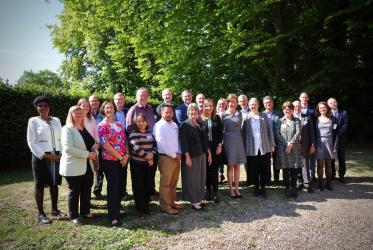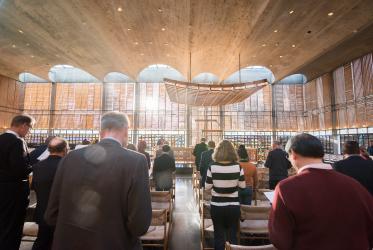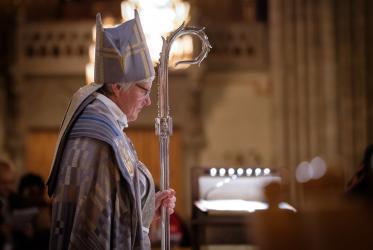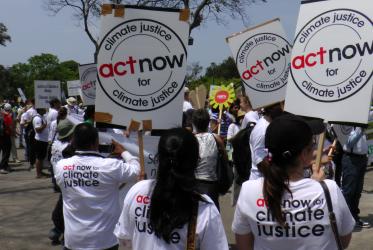Displaying 1 - 14 of 14
WCC posts job openings for leadership staff
27 January 2022
International Labour Organization celebrates 100 years
15 April 2019
WCC moderator speaks at Justice Conference in Norway
09 November 2018
Archbishop Antje Jackelén opens ACT Assembly in Uppsala
29 October 2018
What difference does dressing in black make?
02 August 2018
WCC convenes strategic meeting on sustainable development goals
11 February 2016
WCC/UN conference calls for coordinated action on refugee crisis
20 January 2016
Churches' “prophetic voice” will be busy in 2015
18 June 2015










